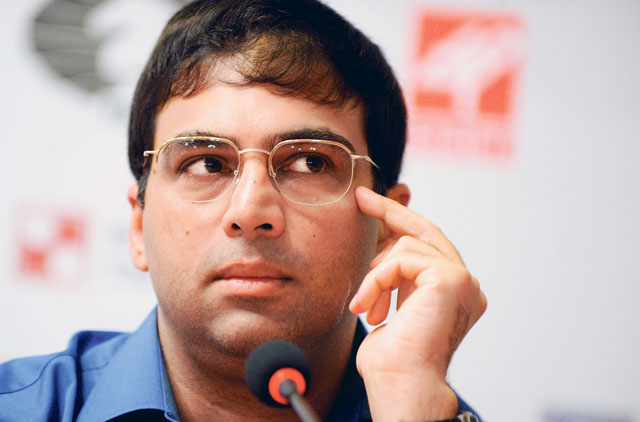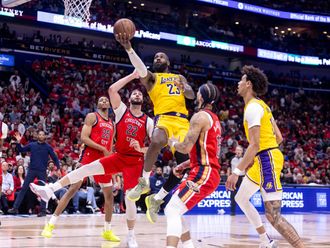
Dubai: While Indian cricket captain Mahinder Singh Dhoni was trying to explain the rigours of excessive cricket, coupled with an over-excessive lifestyle of partying and self-promotion as the core reasons for his team's apathetic performance in the Twenty20 World Cup, a quiet, nondescript Indian called Viswanathan Anand, was trying to dismantle his opponent's psyche with quick attacks and counterattacks on the configurations that lay strewn across a chess board.
At stake was a world title, Anand's fourth, and he won it with ease, defeating Bulgarian Veselin Topalov on Tuesday while Dhoni and his merry men failed to make the cut for the semi-finals.
There are quite a few similarities and some startling differences between an Indian cricketer and a chess player. They can both be fussy to a fault. But while the cricketer is the quintessential prima donna, his chess playing counterpart's fetishes are largely psychological and restricted to questions that deal with the game itself: like the colour of the table, the sound of a clock ticking; whether the opponent should stare at him, look down, or at the wall, whilst contemplating strategy.
The chess player maintains a low profile, while the cricketer is at his best when he is over-exhibiting himself (and then nagging about the excessive media attention). The cricketer, let us take Dhoni, can help himself to earnings in excess of $1.5 million for playing just 14 games in the Indian Premier League (IPL), while Viswanathan Anand relies solely on prize money won and occasionally leverages his equity to a company called NIIT which develops software that teaches kids how to play chess.
Gruelling parties
The value of Anand's endorsements are nowhere close to what a top-notch cricketer may have taken home for playing just four weeks in the IPL. This excludes appearances at gruelling parties, and after-parties, where he rubs shoulders with film stars, super-models and uber-rich industrialists; checks in and out of five-star hotels and flies first-class. It's a tough life to say the least and even the strongest can falter in trying to keep up that pace.
And so the poor Indian cricketer plays, then parties and finally drags his over-exhausted body off the pitch, or the dance floor, to curl up in the first-class cabin of a flight that takes him to the luscious, green islands of the West Indies where he has to do service for his country.
The chess player, in the meanwhile, is stuck at an airport in Spain, thanks to some serious volumes of volcanic ash that have checked out of Iceland, and contemplates a 40-hour drive from Spain to Bulgaria where he must reach in time to win a world title.
The records will show that both parties reached their destination (the chess player took the 40-hour drive by road, while the cricketers landed with great fanfare) and the results are there for all to see. Anand lost his first game and then came back to win the title. The Indian cricketers won the first two games and faded into oblivion. Somewhere between these two contradictory performances there lies a lesson about character. If playing for your country is not inspiring enough then nothing else can be.
By virtue of their flattering accomplishments the team of multi-millionaire Indian cricketers (some of whom are in their twenties!) can lay claim to being a bunch of the greatest ever ‘never was-has been' party boys ever to have played the game, while Viswanathan Anand has legitimate reasons to stake a claim of being one of the all-time greats in his sport - and he did it playing black.













